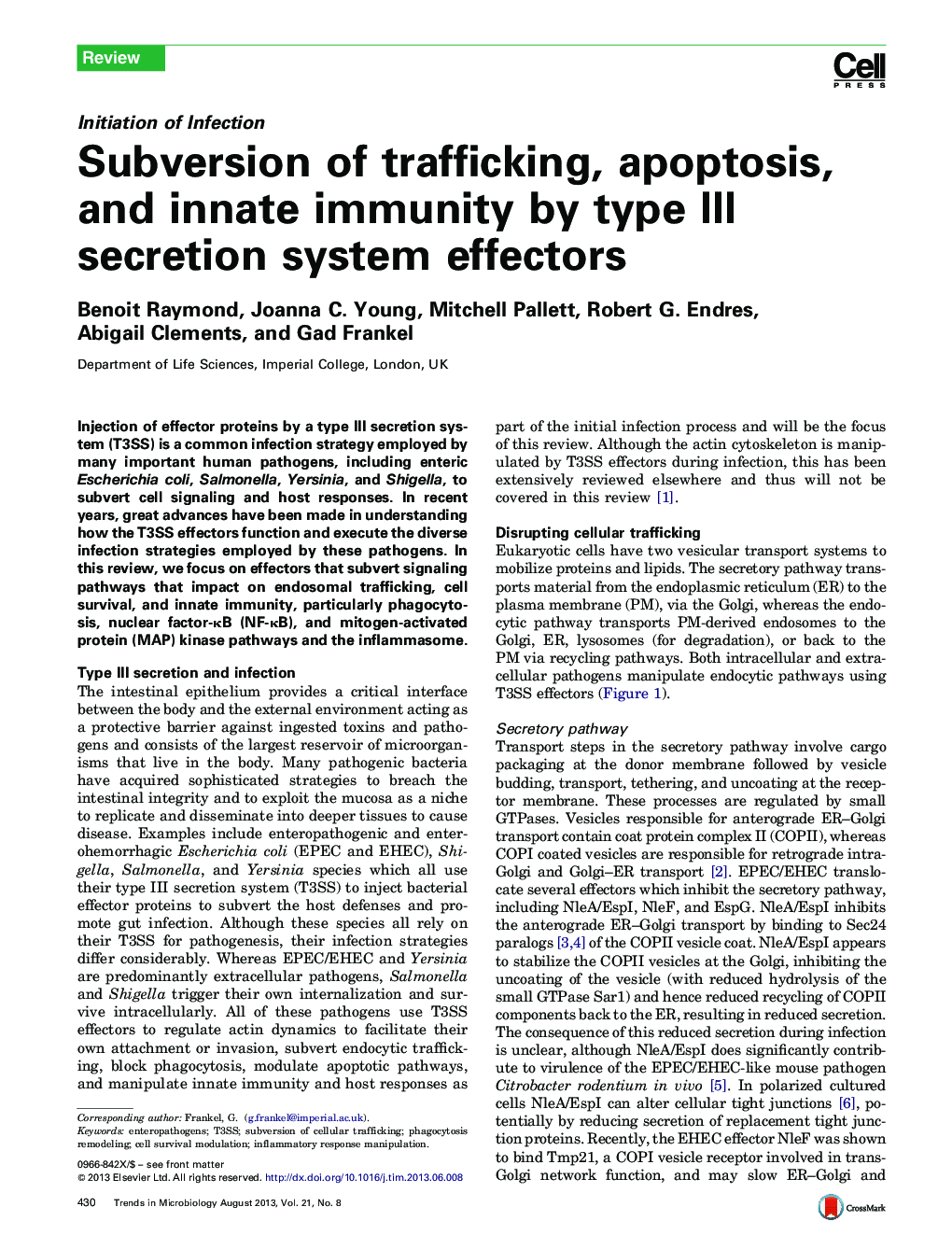| Article ID | Journal | Published Year | Pages | File Type |
|---|---|---|---|---|
| 3421929 | Trends in Microbiology | 2013 | 12 Pages |
•T3SS effectors of enteropathogens disrupt cellular trafficking.•T3SS effectors can block phagocytosis and trigger cell invasion.•Induction and inhibition of cell death pathways have important roles in infection.•Subversion of innate immune responses is key for colonization and multiplication.
Injection of effector proteins by a type III secretion system (T3SS) is a common infection strategy employed by many important human pathogens, including enteric Escherichia coli, Salmonella, Yersinia, and Shigella, to subvert cell signaling and host responses. In recent years, great advances have been made in understanding how the T3SS effectors function and execute the diverse infection strategies employed by these pathogens. In this review, we focus on effectors that subvert signaling pathways that impact on endosomal trafficking, cell survival, and innate immunity, particularly phagocytosis, nuclear factor-κB (NF-κB), and mitogen-activated protein (MAP) kinase pathways and the inflammasome.
